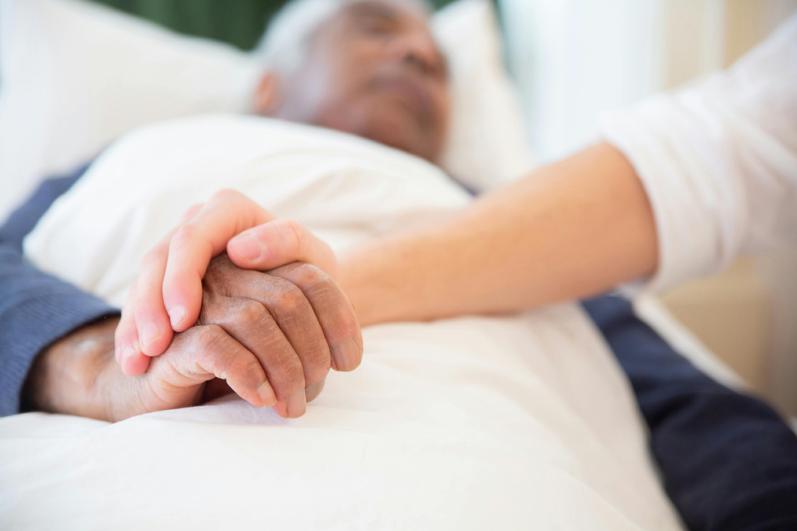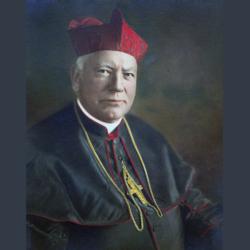Archdiocesan healthcare, policy experts express concerns on assisted suicide push
BRAINTREE -- "I just want to die."
Dr. Karen O'Brien, co-director of the Palliative Care Inpatient Service at Massachusetts General Hospital, hears those words often from her patients. As a palliative caregiver, she is responsible for caring for people of all ages with serious illnesses, from the moment of diagnosis to the moment of death.
"It just takes you down a whole trail of physical, spiritual, psychological distress," Dr. O'Brien told The Pilot in an April 23 interview, "which I think people don't realize palliative care addresses."
She has seen patients endure not only physical pain but "existential distress" as they look back at their lives and contemplate their purpose. She has seen nurses write letters and emails, and set up phone calls, so that the dying can reach out to loved ones one last time. She has helped patients write letters to their children, giving them well wishes for graduations that their mom or dad will never get to see. She has heard people claim to see deceased loved ones, or even God himself, in their final moments. She has seen people die with smiles on their faces.
"They are at peace," she said, "and to give somebody that peace, to be able to be in that situation and sit with them and accompany them on that journey, is the most incredible journey I've ever taken in my life."
Sometimes, people with serious illnesses will come to Dr. O'Brien's clinic with no intention of receiving palliative care. They want to know how they can go to Vermont, where physician-assisted suicide is legal, and die there. With a bill legalizing physician-assisted suicide once again being debated in the Massachusetts State House this year, Dr. O'Brien wants people to know that it is not the only option for the terminally ill.
"Palliative care cares for the whole person," she said, "body, mind, and spirit. When you have a serious illness, and you are approaching the end of your life, I think a lot of people don't realize all of the struggles that they go through. We are social beings; we are spiritual beings. Our life is a gift from God, and only God has the authority to take that away. When we take control of our own lives, we're essentially playing God."
The bill, H.2246, would allow doctors to prescribe lethal drugs to terminally ill patients so they can end their lives. The bill is currently being scrutinized by the legislature's Joint Committee on Public Health, and if the committee approves it, the State House and State Senate will vote on it.
The issue of physician-assisted suicide comes up annually in the state legislature, and each year the archdiocesan response has been the same. The Massachusetts Catholic Conference, the policy arm of the state's four dioceses, makes its opposition to the bill known, and every year the bill fails to advance. In 2012, a ballot measure that would have legalized physician-assisted suicide in Massachusetts was narrowly defeated.
The issue has gained public attention recently after The Boston Globe invited the archdiocese to submit an opinion piece expressing its views on assisted suicide. Cardinal Sean P. O'Malley chose to author the piece himself.
The cardinal's submission was published in The Boston Globe on April 15. In it, he wrote that physician-assisted suicide is wrong on moral grounds. On the same day, The Globe also published a piece by reporter and columnist Phil Primack supporting legalized assisted suicide.
On April 23, The Pilot spoke with three leaders of the Archdiocese of Boston's campaign against physician-assisted suicide: Dr. O'Brien; MC Sullivan, the former Chief Healthcare Ethicist of the Archdiocese of Boston and Dr. O'Brien's co-host on "Talking of Palliative Care," a weekly show on The CatholicTV Network; and Father Bryan Hehir, secretary of health and social services for the archdiocese.
Father Hehir said he was "surprised" by the amount of backlash that the cardinal's column received, not from those who disagreed, but from those who felt that the cardinal has no right to speak on the issue.
"That tone was supplemented by a sense that this issue is deeply personal," Father Hehir said. "Which is true, it is deeply personal. The point that seemed to be missed in some of the commentary is that the nature of the issue, a decision about life and death and how people make that decision, and what the law of the Commonwealth reflects on that decision, is a public issue."
He noted that the Catholic Church speaks out on a variety of issues, including socioeconomic injustice, racism, war, and human rights.
"The church, at every level, believes it is useful and indeed necessary, in terms of its own understanding of its mission, to be a voice on issues with public consequences," Father Hehir said. "We are invited to do that. That's what it means to live in a democratic society."
According to a 2023 poll commissioned by Compassion and Choices, a nonprofit that supports physician-assisted suicide, 73 percent of Massachusetts voters support a bill like H.2246. This includes 68 percent of Catholics. Father Hehir, Sullivan, and Dr. O'Brien agreed that Catholic support for physician-assisted suicide comes from a society that values relativism and individuality over concrete moral standards, a reluctance among Catholic voters to legislate their faith onto others, and lack of education about palliative care.
"Karen and I . . . Have taken care of patients who are in excruciating pain," Sullivan said. "That pain is both physical and psychological. There are ways in which to address that: If not to mitigate the pain entirely, then certainly to help people deal with it. That has not been broadly taught, that has not been broadly available, that has not been broadly implemented."
Sullivan pointed out that since Oregon and Washington became the first states to legalize physician-assisted suicide in 1994 and 2008, respectively, poll numbers in support of the practice have crept up because it has been "normalized."
"That which we might find morally repugnant, or just somewhat offensive, or just plain wrong, or just, you know, fill in the negative," she said, "becomes less so the more that we kind of live with it, or in this case, die with it."
The cardinal's opinion piece, Father Hehir said, was an attempt to make the church's position known to the secular world, on secular terms. The goal is not to force the opposition to believe a certain way, but to persuade them through civil discussion and trying to understand their point of view.
"What needs to run through our presentation is an attempt to see the issue from another perspective," he said, "even though we differ on the perspective."
Sullivan believes that people who support physician-assisted suicide are motivated by fear.
"People have seen painful deaths," she said. "Many of us have, and they don't want that for themselves or their loved ones. It's not purely selfish."
But she called legalizing physician-assisted suicide "a slippery slope." Its proponents point to people with incurable diseases that cause tremendous pain, but she fears that the U.S. could become like Canada, where those who are "having a series of bad days" are candidates for physician-assisted suicide.
"People in this instance, as in so many instances, want to make their own choices," she said. "Well, this is something about which they don't understand, that there are choices to be made that are bigger, and more, frankly, palatable for many people if they knew about them, than just killing themselves."
Dr. O'Brien was a primary care physician for 24 years before she felt a "calling" to palliative care.
"It has been the best decision I have ever made," she said. "To be in that place where people are vulnerable, where people need our help, where they need our care. We accompany them as Jesus accompanied the most frail, the poorest."
She fears that the poorest and most frail in society will choose physician-assisted suicide because they feel like a burden on their families. In an overburdened U.S. healthcare system, she imagines that a "busy clinician" would be too quick to prescribe physician-assisted suicide to patients.
Sullivan described caring for patients who have suffered, but she has also seen what she calls "the grace of a happy death."
"That is a time unlike any other in our human existence," she said. "Things happen in that period that are holy... There's an openness, there's a candor, there's an outpouring of love, and to deprive people of that because they don't have palliative care is one of the saddest things I can think of."
Father Hehir stressed that the debate over the legalization of assisted suicide must remain respectful, and recognize that those on both sides of the argument feel strongly about their beliefs.
"The common denominator is: How do you find civility in a disparate, religious pluralistic society?" he said. "So, I think we ought to acknowledge that we're trying to be aware of that, even as we want to make a strong, powerful case for what we believe."



















